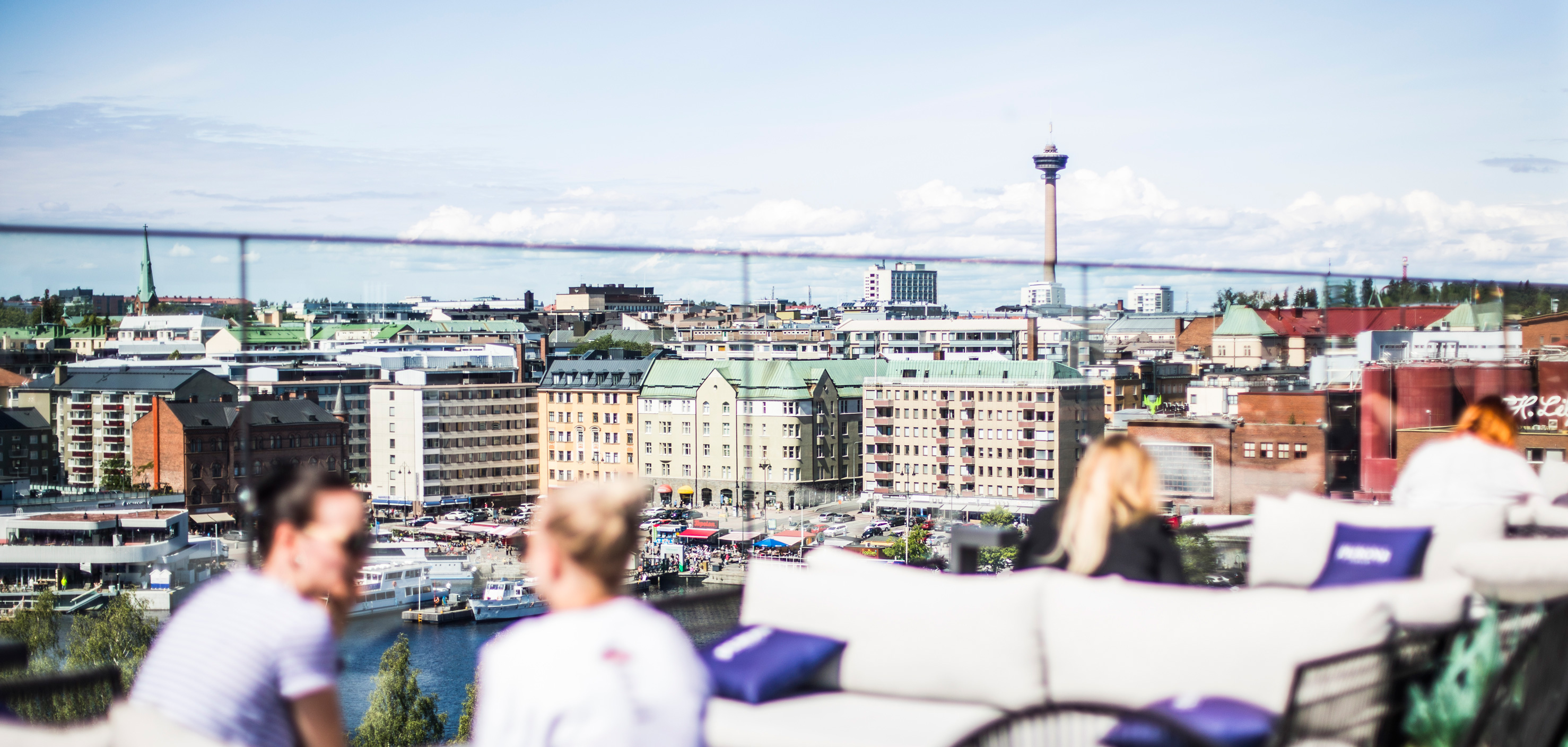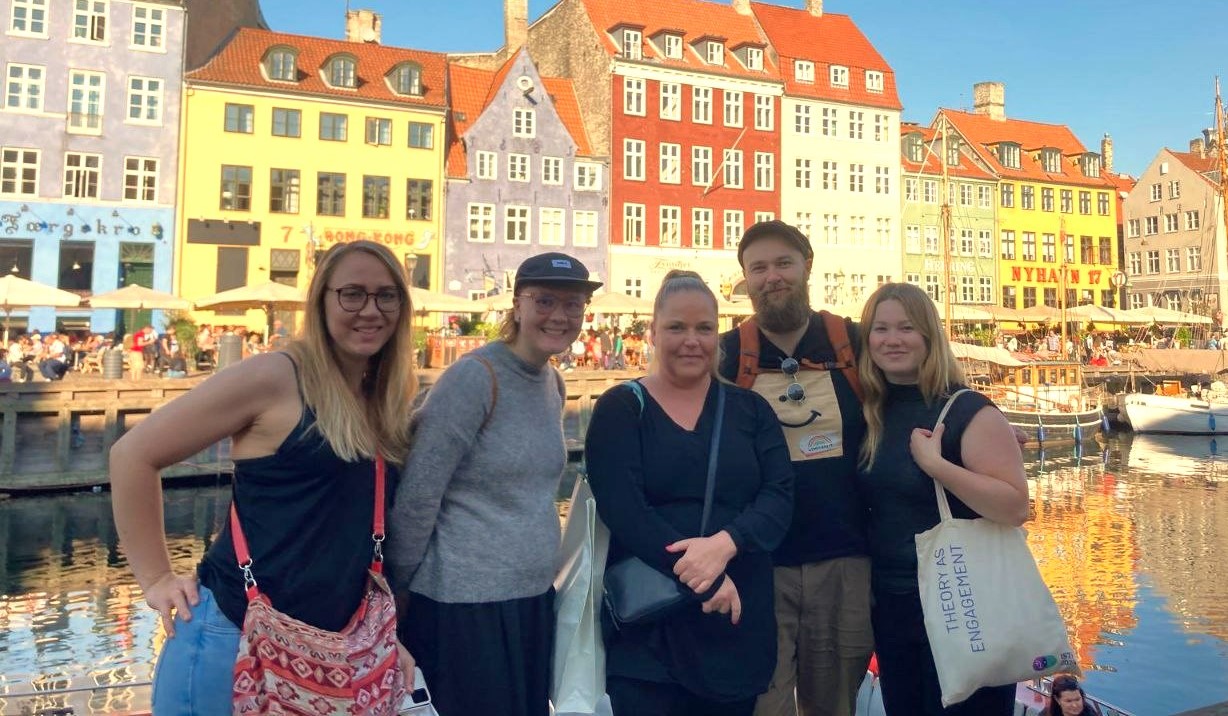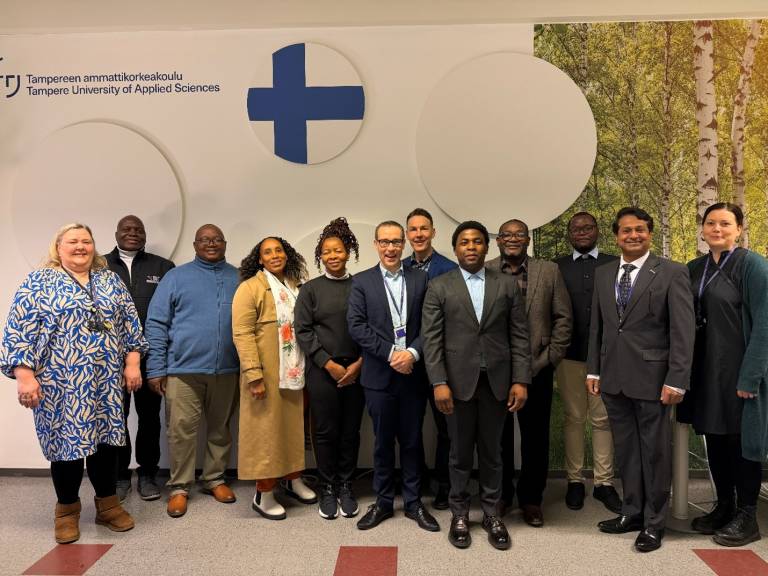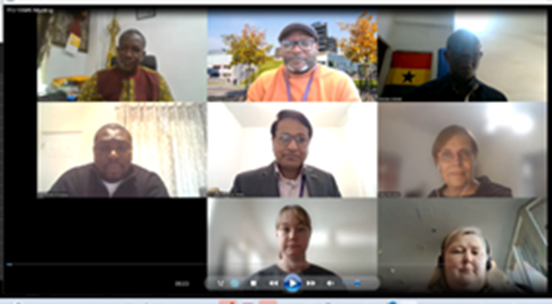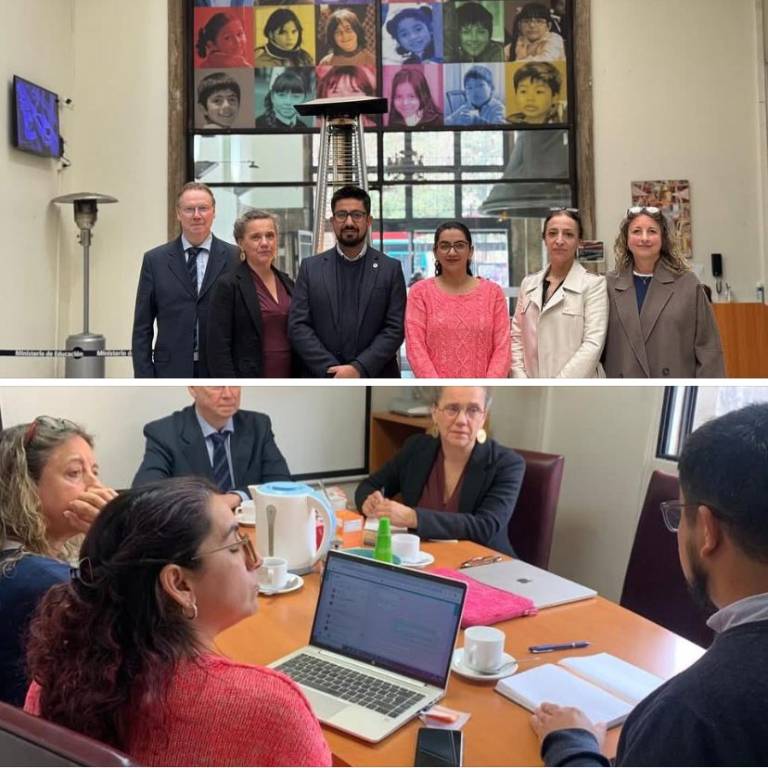“Promotion of transprofessional trauma-informed approach” is a NORDPLUS project organized by TAMK, Kauno Kolegija (Lithuania) and Copenhagen University Collage (Denmark). This is a multidisciplinary project that involves students and lecturers from social services and physiotherapy. The project includes intensive courses and short mobilities. The participating students are learning not only the substance of trauma-informed approach, but project work and international collaboration as well. International projects offer intensive, exciting and fruitful ways for learning!
Pauli: I think that participating in international projects is a safe and intensive way to broaden your thinking and get outside your comfort zone. I’ve only participated in short mobilities, and I think it’s more convenient than a student exchange for a whole semester. Our mobility was all in all only for 48 hours plus travelling time by ferries and trains, but the amount of inspiration you get, even from a short visit, shouldn’t be underestimated.
Sohvi: I absolutely agree. It was a great opportunity to participate in this mobility and see how social work and social education is done in three different settings in Copenhagen. I got to bring that knowledge back to my colleagues and the project’s target audiences in Finland.
Pauli: Everyday life in Finland has become more fragmented and as a student your focus is all over the place. The opportunity to stop and focus on a specific subject for a longer period of time is valuable in itself. There’s a big difference in working on a subject for a couple of hours at a time, over a longer period, versus focusing for a couple of days just to work on a specific thing and theme.
Sohvi: That is so true. The project studies I am currently doing consist of working a couple of hours here and there among all the other courses I am taking and the life I am living outside schoolwork. In other words, project work tends to consist of many smaller tasks instead of one big body of work. It was great to observe how things were done outside of Finland. Just letting thoughts form and inspiration take over. There isn’t as much time and space for those things in everyday life when working on a project.
Pauli: And the places you get to visit! I think we were both amazed by Kompaskonsult, which is a family therapy center working with trauma. 9–12-month weekly meeting with clients with interprofessional approach. In Finland these services are spread out into different institutions. Thit visit was really a holistic way of learning about trauma-informed approach in practice.
Sohvi: Exactly! I was blown away by Kompaskonsult and its blend of cozy feeling and the staff’s firm professionalism. Kompaskonsult is a good example of the hidden gems one gets to see when participating in international trips and projects at TAMK. This was an intense couple of days, but the professional and personal gains were totally worth it.
Pauli: And you’ll make new connections. Even If you are not making them with the local students, you’re most likely to get to know the people you travel with better than before. Reflecting and sharing your ideas and feelings during the trip is at least as important as the work you’re doing on site.
Sohvi: Definitely. And the discussions can at best raise new ways of thinking, but also reveal that some things are quite similar, even on an international scale.
Pauli: I think the world has gotten a little smaller after each visit. I didn’t know that I was a part of a global community of social workers with similar dreams of saving the world. Just like in our own little bubbles back home.
Sohvi: Indeed. Global problems seem overwhelming most of the time. But I think traveling has given us first and foremost hope.
Text & picture:
Sohvi Auvinen, student of Social Services
Pauli Rauramo, student of Social Services
Eeva-Mari Miettinen, project manager and senior lecturer in Social Services

